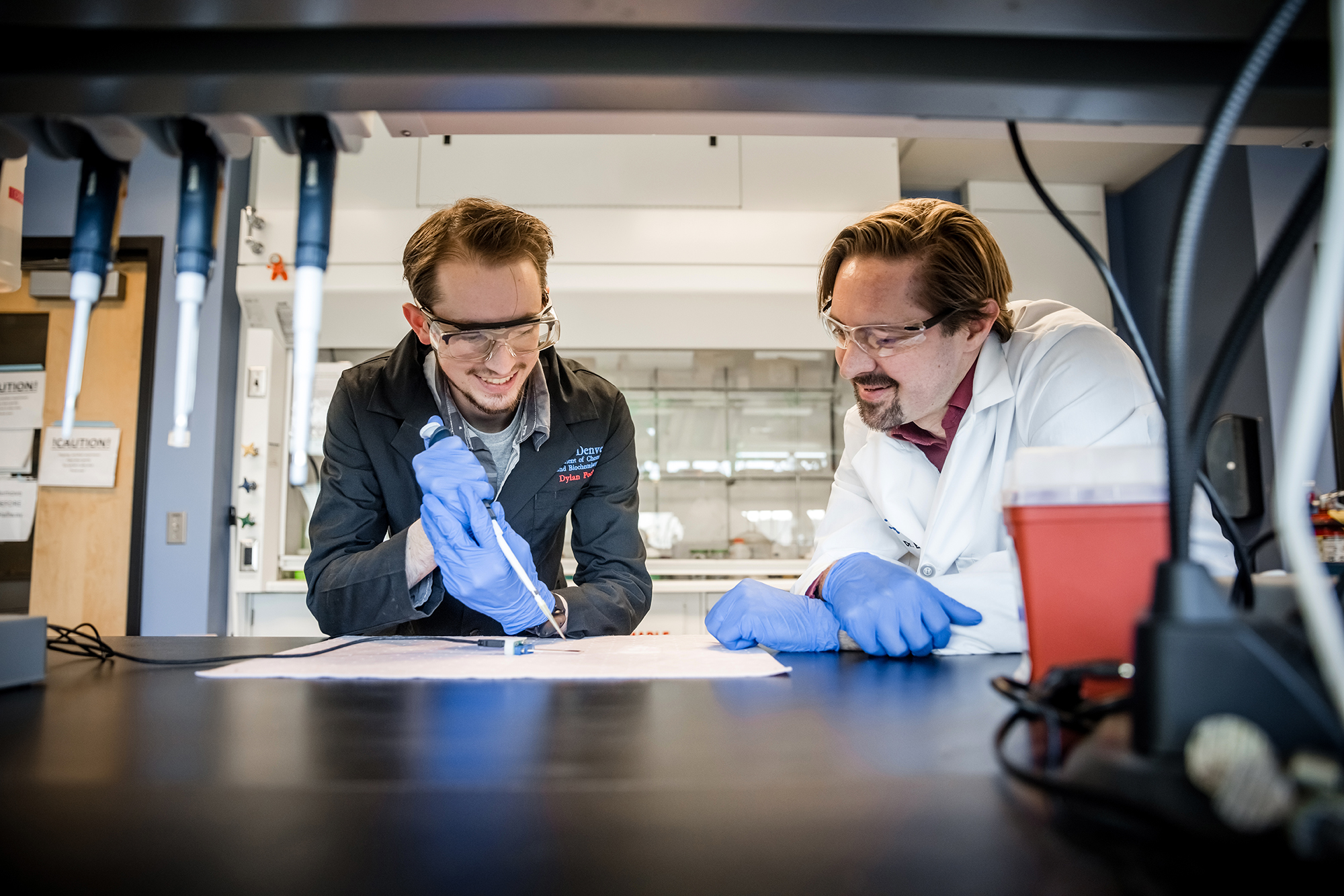Have Questions? We have answers.
Contact Us

When alumnus James Patton died March 30, 2020, he bequeathed his Colorado assets – totaling an estimated $1.5 million – to the Metropolitan State University of Denver Science Department, ensuring that his legacy would live on through his Roadrunner family.
After earning a degree in Biology from MSU Denver in 1984, Patton contributed to various funds over the years and served as a member of the Alumni Board from 2006-10. But he never hinted at a plan to make such an extraordinary gift – the largest realized estate gift from an alumnus. In addition to his gift to the University, Patton’s Texas assets went to Goliad High School (his alma mater) in Goliad, Texas, to support agricultural-education programs such as Future Farmers of America.
Charles Burg, Patton’s attorney and personal representative for the past 15 years, says Patton rarely spoke about his personal life, painting a picture of an intensely private man who was hesitant to share much with anyone. Upon Patton’s death, Burg carefully examined the possessions and personal records left behind in Patton’s home to piece together a picture of the benefactor whose generosity will transform the lives of Science students for years to come.
Patton was born Sept. 15, 1949, the great-grandson of slaves relocated from Tennessee to eastern Texas. Following his parents’ divorce, Patton’s mother raised him in Jefferson, Texas, and his father moved to Denver. After graduating from high school, Patton enlisted in the U.S. Army and served in Vietnam as a member of the Military Police Corps, receiving a Bronze Star.
Upon returning to civilian life, Patton attended MSU Denver (then Metropolitan State College) and, after graduating, worked in quality control for Coors Brewing Co. in Golden. While it was a good job, it was not without its challenges – a note stashed within Patton’s home-office files indicated he felt targeted for being Black. The message, punctuated with racial slurs, said some co-workers didn’t want him around. But even with those struggles, Burg says Patton felt fortunate to have been able to apply his Science degree toward a long-lasting and rewarding career.
Other items revealed Patton’s pride in his African American heritage, including pages from a 1996 calendar distributed by Coors depicting Black pioneers and their achievements pinned to the walls. His small library provided additional insight into the man behind the gift, with books on the lives of James P. Beckwourth, Cornelius Vanderbilt, Malcolm X and Adam Clayton Powell indicating a wide range of influences.
And while Patton kept many things to himself, he often told Burg how proud he was to have attended MSU Denver and expressed gratitude for the life it afforded him. Now, Patton’s memory will live on in perpetuity at MSU Denver through the James A Patton ’84 Endowment for the Sciences, which will support hiring students from underrepresented backgrounds for student research and employment opportunities in the Science Department.
Sheryl Zajdowicz, Ph.D., professor and chair of the Department of Biology, and Andrew Bonham, Ph.D., professor and chair of the Department of Chemistry and Biochemistry, are at the forefront of developing the programming that the endowment will fund.
“We’re calling it the Patton Scholars,” Zajdowicz said. “Students will apply to act as instructional assistants in introductory courses or courses where we have high DFW (grades D, F or withdrawal) rates to provide other students with the additional support they need to be successful.”
In addition to sharing their knowledge with fellow students, scholars will build a community where they can develop leadership skills, expand on their scientific skill sets and prepare for the future with professional development, all facilitated by a faculty coordinator. Zajdowicz says students who have that type of community-building experience and support system are more likely to be retained, graduate and attract other scholars to join the program.
As the program grows, Zajdowicz and Bonham hope to expand it beyond the classroom to include experiential learning opportunities in the form of summer programs that would allow students to conduct research with a faculty mentor on campus. Bonham says the inclusion will help students maintain their excitement and momentum to go into science fields, including medical school and graduate programs.
“Employers and graduate schools are looking for students to have the communication piece, the leadership piece and the hands-on-learning piece,” Zajdowicz said. “We want to build in all of those tools to set our students up for success.”
Recruiting for Patton Scholars, including the faculty coordinator, begins this fall, and the first cohort, composed of four or five students, will launch next spring. Zajdowicz and Bohnam are adamant that the scholar-nomination process breaks down traditional barriers that might exclude students, such as rigid GPA requirements.
“Those requirements can unintentionally disadvantage students from the kind of backgrounds that we want in this program,” Bonham said. “We want to cast a wide net.”
Some of Zajdowicz’s best research students have been those with a C average. “Maybe they just weren’t as good at test-taking or something like that,” she said, “but they know how to piece the material together and communicate with other students.”
Because of Patton’s gift, students at MSU Denver will be able to reimagine a future in science where anything is possible.
“Patton Scholars is going to offer students a transformational opportunity that extends beyond their college experience,” Bonham said. “Not only will it help them get through college, but it will give them a vision for their future.”
For more information about planned giving, contact Katie Biscoe, associate vice president of Advancement.
